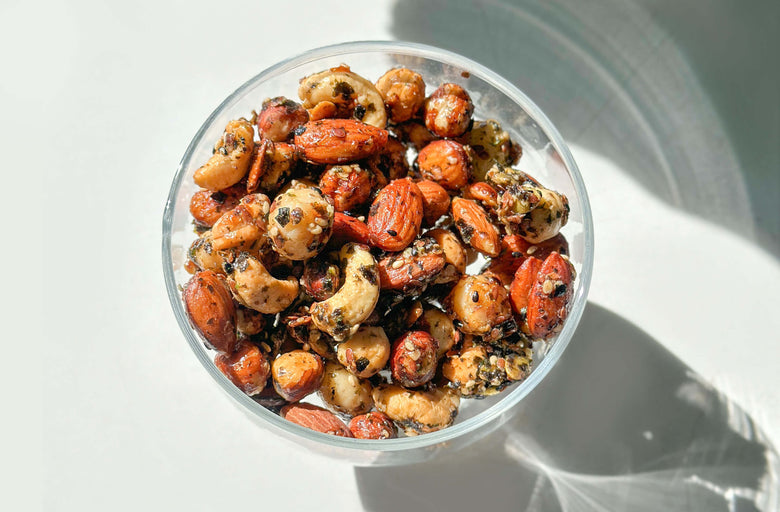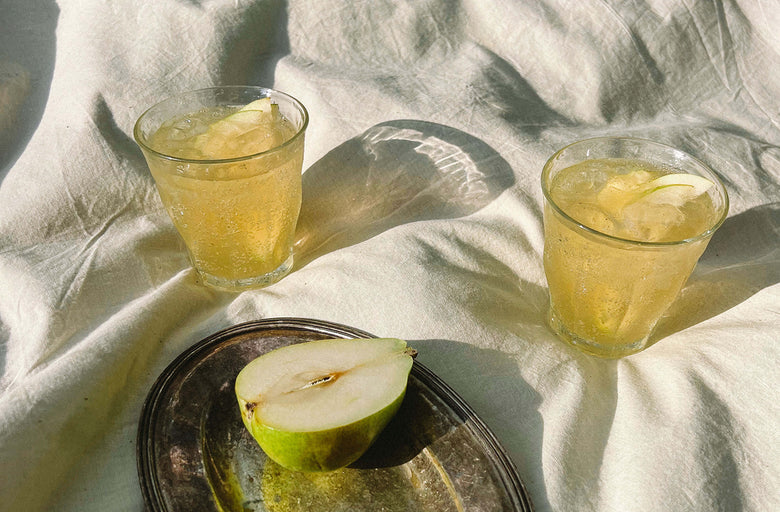When topics like plant-based eating or the microbiome make the news, we get a little thrill, sort of like a like proud parent. And we know you want to stay up on the latest science and spirit news, to indulge our curiosity, and to tap into the collective consciousness of everything from the microbiology of the gut to the waxing and waning of the moon.
In the spirit of remaining ever open to new knowledge, we’re giving this ongoing conversation its own home on S Life. Each month, we’ll bring you the latest in health, wellness, and nutrition, and share dispatches from Sakara HQ.
It’s all part of our bigger mission to feed your body and your mind.
THE SCIENCE
Is the calorie (finally) dead?
Calorie counting has long been touted as the prevailing method for weight loss. Yet the more we learn—about nutrition and the workings of the human body overall—the closer we come to debunking this widely accepted theory. At best, the concept of the calorie is outmoded; Calories were originally used to measure the energy it took a steam engine to heat water, and the whole “a calorie is a calorie is a calorie” myth dates back to the late 1880s. At worst, it’s dangerous. Did you know calorie counts on packaged foods are legally allowed to be understated by as much as 20%?
Your body is a complex ecosystem—not a controlled environment like a lab—and tracking calories can’t possibly account for all the nuances involved with human digestion, like sleep, stress, and the unique makeup of your personal gut microbiome. And the same number of calories from different foods affects the body in wildly different ways. To reach a healthy weight while maintaining your health and your sanity, eat a varied diet of fresh, unprocessed, whole foods, including plenty of plants. Quality beats quantity every time.
The crucial gap in your diet
Traditional diets are obsessed with dearth: eliminate this, eat less of that...in fact, just eat less in general. But an ever-growing body of research points to one nutrient that 95% of Americans actually need to eat more of—because it has the power to heal inflammation, lower cholesterol, and stave off a host of illnesses and conditions, from diabetes to heart attacks to cancer. It’s fiber, the favorite food of our frugivore primate ancestors. Although we’re evolutionarily meant to eat the stuff, widespread changes to our modern food system have resulted in serious fiber setbacks: more meat on our plates, more ultra-processed foods on our store shelves, and, due to industrialized agriculture, less fiber in our fruits and vegetables.
Fiber is absolutely essential to optimal human health, and you’re likely not eating enough of it. While most of the research so far has been conducted on mice, promising findings are leading experts to advise a renewed focus on fiber. A fiber-fed gut microbiome can, among other things, offset the negative effects of a high-fat diet, produce short-chain fatty acids that regulate blood sugar, and protect the body from inflammation and autoimmune disease. To fill the gap, eat more fresh, unprocessed plant foods—and plenty of them; it’s basically impossible to overdo it.
Need some kitchen inspiration? Try these fiber-rich recipes: Soothing Carrot-Ginger Soup, Savory Black Quinoa Muffins, Summer Veggie Farro Salad
Brain food...literally
What if you left the psychiatrist’s office with a grocery list instead of a prescription? The study of nutritional psychiatry brings new meaning to the term “eating your feelings,” suggesting that one of the best treatments for depression can be found in the produce section, not the doctor’s office. Many experts—including author and psychiatrist, Dr. Drew Ramsey, believe nutrition is a vital part of the mental health equation. His treatment plans routinely include a diet rich in omega-3 fatty acids and brain-supporting phytonutrients along with medication and talk therapy.
Scientists know that a diet rich in fresh fruits and vegetables, legumes, whole grains and healthy fats (like from nuts, seeds and cold-pressed oils and certain fish) supports a healthy brain by lowering inflammation, promoting new brain cell growth, and protecting against age-related brain degeneration. And a 2016 study found that people who increased their intake of fruits and vegetables experienced an improvement in happiness and life satisfaction, compared to those who didn’t change their eating habits.
If you’re struggling with depression, anxiety, or other mental health issues, your plate is your closest ally. A varied, plant-rich diet low in processed foods shows increasing potential for benefitting your state of mind.
In other news…
The low-carb, high-fat keto diet has risen to viral popularity over the last few years, with its promise of rapid weight loss and all the almond butter and avocados you can eat. But a new study suggests that due to differences in sex hormones, that may only ring true for men.
The Environmental Working Group has released its annual Dirty Dozen list, ranking fruits and vegetables by the amount of pesticides they carry when grown conventionally, and one of wellness’ favorite leafy green crucifers makes an appearance for the first time in a decade. Especially when purchasing foods on this list, which include strawberries, spinach, nectarines and apples, choose organic.
THE SPIRIT
Tips for making Sakara meals your own
Our employee hive mind is a treasure trove of creativity when it comes to customizing Sakara meals. Here are some of the highlights from an informal poll of Sakara HQ; try them with your next delivery.
“I take a lot of the toppings off and chop/massage the greens with the dressing so everything is totally covered and delicious. Also, packaging hack: I reuse my salad containers as storage for my own cooking leftovers. They travel easily!”—Erin, Graphic Designer
“Add a soft-boiled egg, drizzle of really good olive oil, Maldon salt, and pepper." —Tyler, Culinary Director
“Blending my entire salad (dressing and all) into a smoothie to share with my daughters.”—Betsy, VP of Marketing






